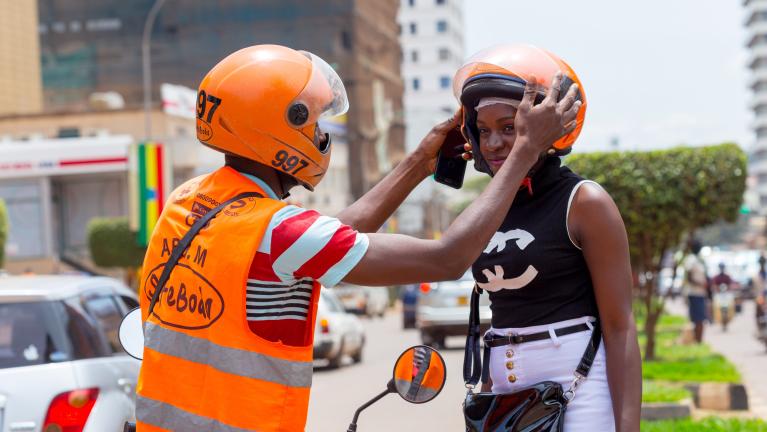As SafeBoda prepares to launch its operations in Nigeria, web browser Opera has announced that it is joining the ride-hailing market in the West African nation.
Opera is leveraging its payment service OPay, which facilitates the transfer of money, paying for good and services, and is currently being used by strong African economies like Nigeria and Kenya.
Speaking to TechCabal, Ridwan Olalere, director of payment product at OPay told the Nigerian tech publisher that they want to turn the payments application into a super app.
The latest additions to Opay, according to TechCabal will be Oride, a motorcycle taxi app which follows OFood that’s currently being used for its food delivery business.
Oride (by Opera) is coming too! https://t.co/NP85cdEHIe pic.twitter.com/jTcXRcbgKS
— Oladapo Olapo (@OladapoOlapo) May 17, 2019
Olalere says they’ll be rolling out the ride-hailing service in Nigeria “in a few weeks”, reports TechCabal, adding that they are currently training riders, on top of the OFood pilot which has already enrolled over 300 restaurants.
How does this affect SafeBoda?
SafeBoda at the beginning of May named Babajide Duroshola, a former Andela executive to head its operations in Nigeria. Nigeria will be SafeBoda’s second international market after Kenya, where it launched in mid-2018.
Though SafeBoda has been in the ride-hailing industry for a longer time, Opera has more resources (it’s already a profitable company while SafeBoda is in early stages of raising money) that can be utilized to curtail SafeBoda’s ambitions on the continent.
Also important to note, while SafeBoda only currently allows mobile money top-ups for cashless payments, you can top up your Opay wallet using your bank account, on top of allowing mobile money as well. This means more options for Oride users. However, SafeBoda says it hasn’t diversified its payment options because most of its users have mobile money accounts.
Opera and SafeBoda are also facing off in key startup markets on the continent, basing on fund-raising reports which means the one that attracts most attention first has an upper hand on gaining attention in other smaller markets.
However, there is one key thing that puts SafeBoda ahead of most ride-hailing firms in Africa: the discipline of their riders. It has suffered fewer scandals compared to other companies, where there have even been cases of murder.
It should be recalled that SafeBoda recently nabbed a Series B, which was co-led by GoJek, one of the biggest ride-hailing firms in Asia. With this kind of backing, it puts SafeBoda in a better position to raise additional money as long as it continues to show growth potential. (GoJek could be eyeing to acquire it so it’ll do anything to see it succeed.)
SafeBoda has also shown interest in joining the food delivery business in Kenya. This website understands that SafeBoda, which already has hundreds of riders on-boarded by its subsidiary in East Africa’s largest economy, is also planning to extend to Mombasa in a few weeks.
Other competition
Away from Oride, SafeBoda will also have to convince Nigerians not to continue using Gokada and Max, which are already operating in Nigeria. Gokada and SafeBoda have raised funds from the same VC firm, CRE Venture Capital, the firm’s website shows.
The Lagos-based company, also the biggest in motorcycle taxi-hailing in the populous city, it recently rolled out a rapid response service called ‘GMedic’ to provide first aid treatment to accident victims before transferring them to hospitals.
G-Medic is a rapid response service from GOKADA. Its main aim is to administer First aid to accident victims before rushing them to a nearby hospital. Your safety is always our top priority as our purpose is to constantly provide ways to make cities more livable. #Gmedic #safety pic.twitter.com/J0qw6yWRKl
— Gokada (@GokadaNG) May 16, 2019
Founded by Deji Oduntan and Fahim Saleh in 2017, just as SafeBoda has worked hard to professionalize the commercial motorcycle industry through training, Gokada also launched its training school this year.

